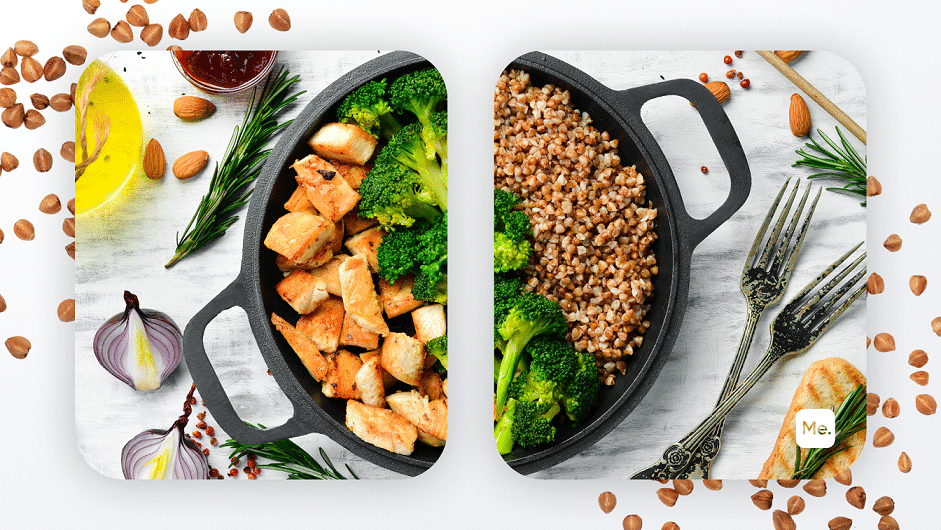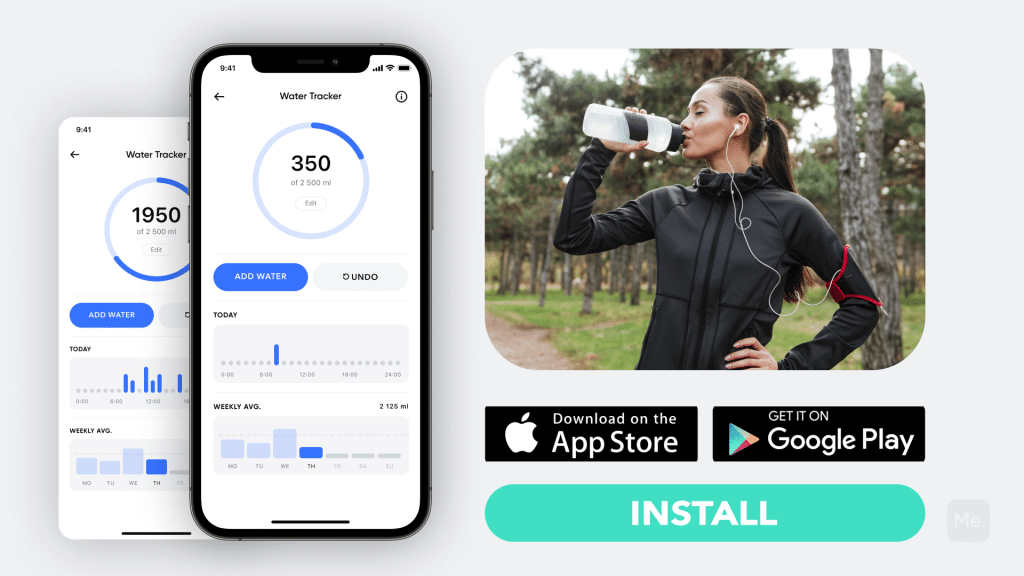Hunger is an essential natural body cue as it alerts us when we need more food. After getting this signal, you are expected to eat but within your daily calorie limit. However, most people end up overeating in one sitting but still feel hungry despite the large intake. What if you find that your stomach keeps rumbling, even after a heavy meal, something that can be embarrassing. It has led to the question; why am I hungry after eating?
The first thought could be that you are not full and need to get some more food. However, even after eating the added food, you still feel hungry and have the urge to eat. So, is it that you are eating unsatisfying foods or are not eating enough? Let us find out!
This article will discuss some backed-up scientific reasons why you always want to eat, even after eating. We understand that not feeling satisfied is a real problem, so we will discuss these reasons and how to tackle them. Take a look!
Why Am I Hungry After Eating?
You may think it is okay to feel hungry after eating, especially if the meal you just had was tantalizing. Of course, it could be, but if this feeling persists it may be indicating something more profound like an underlying health problem.
For this reason, research has been conducted about why someone may still be feeling hungry after eating. Nutritionists and food experts have come up with several culprits on your overeating pattern, even if you just had food. Science says that you could end up feeling hungry after a meal because of the following:
Following A Highly-Restrictive Diet
Let us face it. Most people in today’s society are opting to follow different diet plans to attain several fitness goals. The most common reason why most individuals follow diet plans is for weight loss. However, the major mistake most dieters make is following a highly restrictive or calorie-restrictive diet.
As we all know by now, weight loss entails consuming fewer calories than your body burns. However, it does not mean you should be restricting your calorie intake so much that you end up feeling hungry even after eating. If this happens, it is an indication that you are following a calorie-restrictive diet all or much of your time, and that that diet may be too restrictive (1).
When this happens, your body is forced to release the hunger hormone ghrelin. Ghrelin is released whenever your body wants more food. If you have too much of this hormone in your body, this means that you will keep eating even if you have just eaten.
Read More: 1200-Calorie Paleo Meal Plans: Caveman Diet But Make It Delicious
Binge Eating Disorder
You may also report an increased appetite if you have an underlying binge eating disorder. According to Medicine Net, this refers to a mental illness characterized by recurring episodes of binge eating. But, again, this is despite an individual’s effort to work out.
About 2% of the men and 3.5% of the women develop this disorder, most commonly in their teenage years (3). Unfortunately, most people may not recognize they have this disorder until it is too late. According to Medicine Net, some of the early warning signs to look out for include (3):
- Eating even when you do not feel hungry
- Eating alone because you feel ashamed of always eating
- Feeling disgusted, depressed, or extra guilty after overeating
- Eating quicker than usual
- Eating past your comfort point
This disorder tends to have a dire impact on your health. So, you are urged to seek immediate medical assistance if you report the listed signs and symptoms.
Bulimia
You may also tend to feel hungry after eating if you have Bulimia Nervosa. This is an eating disorder characterized by binge eating episodes and then purging food and calories (3). Although most people may not know it, this eating disorder has mental effects in addition to physical health effects.
According to Medicine Net, it may result in mental health problems, including depression, body dysmorphic disorder, anxiety, and several substance- abuse disorders (4). There is no known cause for bulimia, though it is associated with environmental stressors (4).
Increased appetite and excessive eating are not the only telling signs of bulimia. Other early warning signs that you need to watch out for include (4):
- Excessive calorie intake even if one feels full
- Purging behaviors, including forcing yourself to throw up or abusing laxatives, diuretics, diet pills, and other drugs
- Abdominal cramping or pain
- Bloating associated with repeated vomiting
- Deteriorating and discolored teeth
- Sore throat
Stress
You may also feel hungry all the time because of increased or high-stress levels. Stress affects your appetite in two ways. First, Health Harvard acknowledges that short-term stress tends to shut down your appetite. So, instead of eating too much, you end up eating less due to a reduced appetite (10).
The rationale behind this is that your nervous system sends messages to your adrenal glands to release the adrenaline or epinephrine hormone (10). This hormone is responsible for your body’s fight-or-flight response, a state that temporarily shuts down your appetite (10).
However, if you have prolonged or long-term stress, your body releases a hormone called cortisol. Cortisol increases your appetite, which makes you overeat, even if you feel full. Thus, it results in what most people may consider stress eating.
The only way you can reduce an overeating pattern caused by stress is by learning how to manage your stress levels effectively. You may consider adopting methods such as yoga, meditation, and breathing and relaxation techniques. However, it would be best if you consulted with a professional for better insight.
BetterMe app will provide you with a host of fat-frying fitness routines that’ll scare the extra pounds away and turn your body into a masterpiece! Get your life moving in the right direction with BetterMe!
Low-Protein Diet
Consuming a low-protein diet may also make you feel extra hungry even after eating. However, some people still opt for such a diet plan due to its benefits. For example, according to Medical News Today, this meal plan puts less strain on the kidneys (9). As such, it benefits individuals with kidney-related disorders like kidney disease or phenylketonuria (9). Certain healthy diets such as vegan and vegetarian diets can also be unintentionally low in protein if not planned carefully.
Research suggests that consuming a low calorie diet can lead to overeating even when full because of the reduced protein content (1). Adequate protein in the diet is vital as it helps with increasing satiety levels, making you feel less hungry.
A high-protein diet has also been associated with increased weight loss due to reduced over-snacking and overeating. Some of the foods you can include in your meal plan to help improve the protein content include:
- Most types of milk and dairy products
- Protein powders
- Most nuts and seeds
- High protein yogurts and yogurt drinks like kefir
- Beans, lentils, and peas
- Fish, lean meats, and poultry
- Protein powders, which you can add when preparing smoothies, shakes, or healthy baked products like cookies
High-Sugar Diet
Why am I always hungry even after eating oatmeal? It could be because you are following a high-sugar diet. You may have incorporated oatmeal for breakfast, but your meals are typically high in sugar content. For example, your diet plan may include sugary stuff like sugary drinks, sweetened dairy, and baked goods.
All these products contain sugar, which is harmful to your health in excessive quantities. According to WebMD, the recommended daily sugar limit is 12 teaspoons or 200 calories (6). Unfortunately, most Americans consume about 270 calories of sugar or roughly 17 teaspoons (6).
Keep in mind that high sugar content increases your appetite, and specifically for sugary stuff. So, whether you are full or not, you are constantly eating, and the most likely sugary foodstuffs like cakes, biscuits and cookies.
Dehydration
Believe it or not, dehydration can be mistaken for hunger, making most people constantly eat, even after eating. When this becomes a trend, you end up feeling hungry despite having your meals moments or minutes ago.
If not, you may feel hungry but have no appetite because of dehydration. The major mistake you can make is having sugary, caffeinated, or alcoholic drinks to satisfy your thirst. Remember that all these drinks contain calories and often sugar, and may not be the best option, especially if you are trying to lose weight.
It is for this reason that you are always advised to hydrate first whenever you feel hungry. After drinking water, wait for thirty minutes before eating. In most cases, the hunger will subside if all it was dehydration.
We understand that some people poorly track their drinking water. For this reason, the Center for Disease Control and Prevention (CDC) suggest adopting any of the following tips to help with hydration (8):
- Carrying a water bottle everywhere you go to remind you to hydrate.
- Adding mint and citrus fruits like lemons or limes to help enhance the flavor of water allowing you to consume more water.
- Choosing water over sugary drinks.
Read More: A 14-Day Lemon Water Challenge To Lose Weight
Generalized Anxiety Disorders
Are you still hungry after eating? It is common, especially among individuals who have generalized anxiety disorders (GAD). This is the most common type of anxiety disorder people experience and may result in such an eating habit along with specific phobias.
Specific phobias refers to excessive fear of an object or situation. For example, an extreme fear of spiders is called arachnophobia, that of closed spaces is called claustrophobia, and that of heights is called acrophobia (5).
The common signs and symptoms experienced by individuals with general anxiety disorders include (5):
- Restlessness or feeling edgy
- An increased appetite that may lead to overeating
- Irritability
- Fatigue
- Muscle tension
- Difficulties concentrating, which may also appear as attention or memory problems
- Headaches
- Troubles staying or falling asleep as well as other sleeping problems
Low-Fiber Diet
Consuming a low fiber diet may also make you feel hungry even if you just had your breakfast, lunch, or dinner. Consequently, it may trigger overeating or over-snacking, which may lead to a calorie surplus.
Fiber is essential in our diet because it helps with increasing satiety. When your satiety levels are high, you feel fuller for longer and have a reduced urge to eat or snack (7). More so, fiber in our diet helps reduce harmful cholesterol levels, stabilize blood sugar levels, improve gut health, and promote weight loss (7).
You can always correct this by adding fiber to your diet. Seek the help of your nutritionist or dietitian when crafting such a diet plan. It may be best to gradually increase your fiber intake to avoid unpleasant gastrointestinal symptoms. High-fiber filled foods that they may add to your meal plan include (7):
- Nuts and seeds
- Whole grains
- Pea, beans, and lentils
- Oat and oat bran
- Whole fruits, especially berries (blueberries, raspberries, strawberries) and fruits with apples
- Sweet potatoes
- Vegetables, including dark leafy greens
Boredom
Another culprit of overeating, yet which is highly ignored is boredom. You may end up frequently eating after having a heavy meal merely because you are bored. This happens because most people tend to confuse boredom for hunger. As a result of this you find them overindulging.
The best approach to avoid overeating from boredom is to find something to do. Try to keep yourself busy, for example, by participating in your hobby. It could be drawing, reading a novel, dancing, swimming, and so forth. The idea is to fight and curb boredom as much as possible to prevent the overeating pattern or behavior.
BetterMe will keep you laser-focused on your weight loss journey! Nutrient-packed meal plans, fat-blasting workouts, galvanizing challenges and much more. Try using the app and see for yourself!
Medications
Taking some types of medications may also affect your appetite, causing you to eat more than usual. According to Medical News Today, most of these drugs fall into the antidepressants, corticosteroids, and antipsychotic categories (2).
Antidepressants known as noradrenaline and specific serotonergic antidepressants (NASSAs) are used to treat anxiety disorders, depression, and some personality disorders (2). They result in an increased appetite, which might explain why one possible side effect of taking them is weight gain.
However, other possible side effects are sedation and drowsiness, dry mouth, constipation, blurred vision, and dizziness (2). In severe cases, an individual may experience intense symptoms like seizures, fainting, white blood cell reduction, and allergic reactions (2). If you believe that one of your medications is causing side effects that are negatively affecting your life or health, discuss it with your prescribing physician.
Alcohol Consumption
Alcohol consumption may also contribute to regular eating, even when you have just eaten. According to Medical News Today, research suggests a link between alcohol and overeating (1). The study suggests that the association may be because alcohol stimulates a hunger signal to the brain. Alcohol also lowers your inhibitions, and alcohol consumption is often connected with eating food in social settings.
The Bottom Line
Why am I hungry after eating? Experts have revealed that there are numerous reasons why you may get a hunger feeling even after eating. Some of these reasons are underlying medical health conditions. For example, conditions like Bulimia, Binge eating disorder, and generalized anxiety disorders.
You may also feel hungry despite having your meals if you are following a low-fiber, low-protein, or high-sugar diet. In addition, boredom, medications, alcohol consumption, stress, and consumption of a highly restrictive diet can also contribute to this eating disorder.
Do not take matters into your hands without seeking professional help or advice. It would help if you consulted with a licensed nutritionist and healthcare provider before implementing an intervention to stop any of these causes of this eating pattern.
Get your personalized
meal plan!
DISCLAIMER:
This article is intended for general informational purposes only and does not address individual circumstances. It is not a substitute for professional advice or help and should not be relied on for decision-making. Any action you take upon the information presented in this article is strictly at your own risk and responsibility!
SOURCES:
- 17 reasons for always feeling hungry (2019, medicalnewstoday.com)
- All about antidepressants (2018, medicalnewstoday.com)
- Binge Eating Disorder (2021, medicinenet.com)
- Bulimia Nervosa (2021, medicinenet.com)
- Generalized Anxiety Disorder (GAD) (2021, medicinenet.com)
- How Does Too Much Sugar Affect Your Body? (2019, webmd.com)
- Soluble and Insoluble Fiber: What’s the Difference? (2015, webmd.com)
- Water and Healthier Drinks (2021, cdc.gov)
- What to know about a low-protein diet (2020, medicalnewstoday.com)
- Why stress causes people to overeat (2021, health.harvard.edu)













